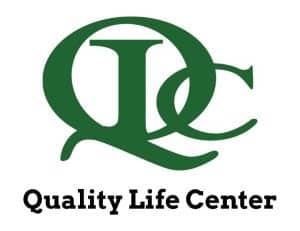Substance Use Disorder (SUD)
Struggling With Substance Use? WE CAN HELP!
Quality Life Center’s SUD Recovery Program offers evidenced-based treatment for individuals struggling with substance use and/or co-occurring mental health disorders to maintain abstinence from alcohol and/or drugs by developing and enhancing healthy life skills that are tailored to each individuals needs and strengths.
- 9-Week Intensive Outpatient Program (IOP) with individual and group therapy facilitated by a licensed, experienced therapist.
- Individualized treatment planning with a licensed therapist to address unique goals and level of care.
- Acquire fundamental, foundational skills to help promote recovery and prevent relapse.
- Medication Management for outpatient detox and ongoing monitoring under the supervision of our Board-Certified Medical Director, Dr. Pradeep Arora.
- Upon completion of the intensive part of the program, we provide follow-up services depending on the individual’s needs.
- Ongoing case management services are available as necessary.
- Florida Medicaid, Medicaid HMO’s (Molina/Sunshine/Humana) and self-pay are accepted.
The Substance Use Disorder Program provides structured clinical interventions designed to provide treatment, support, guidance, and psychoeducation to individuals and/or their loved ones struggling with any substance use disorder. The substance use disorder treatment program is inclusive of the following types of clinical interventions; medication management, specifically medication-assisted treatment.
Our Psychotherapy or Counseling Services specifically address substance use disorder; they will educate and change substance use behaviors, maladaptive thought patterns fueling the emotions, triggers, and curbing the urges associated with substance dependence and how the individual seeking treatment perceives their situation.
In Individual Psychotherapy, a thorough assessment of the individual’s substance use history, joint treatment planning, and goal setting is performed. This, coupled with actionable steps or objectives to assist the individual in achieving the goal of abstaining from substance use, will hopefully significantly reduce their substance consumption. The Therapist utilizes motivational interviewing to ascertain an individual’s readiness for change; in turn, the individual will learn how to change their behavior and manage emotions by changing how they think about substance misuse, identify their triggers and develop a relapse prevention plan.
Substance IOP Groups will focus on skill building. An individual struggling with severe and persistent mental illness and substance use disorder, alcohol use disorder included, would have what’s called a dual diagnosis. A person with a dual diagnosis often benefits from either relearning mental health-enhancing skills before the onset of symptoms or improving upon their knowledge by receiving hands-on guidance and necessary skills to help them manage their mental health symptomatology and effectively navigate their immediate community independently.
Program Hours:
1:30pm – 4:30pm
4063 Salisbury Road, Suite 100
Jacksonville, Florida 32216
To learn more, call (904) 398-2020 or email Dawn Bellamy at dbellamy@qualitylifecenter.com
